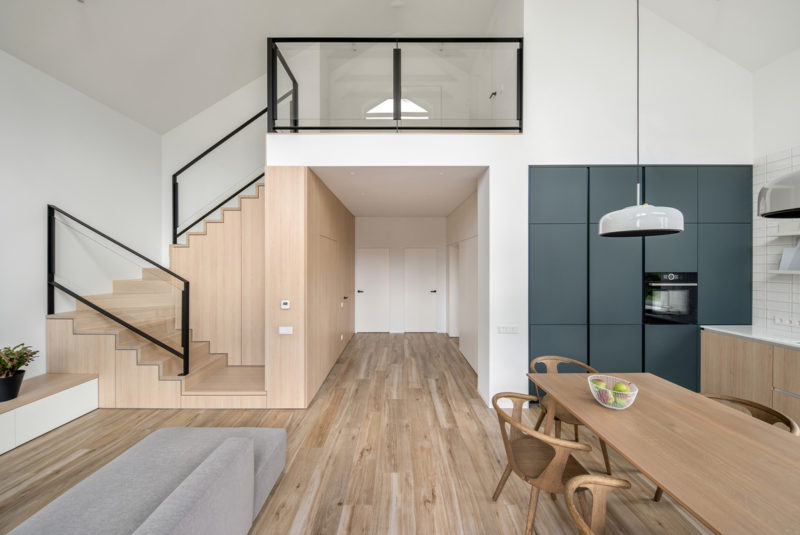Ready To Buy a Home?
Get Approved to Buy a Home
Rocket Mortgage® lets you get to house hunting sooner.
Are you thinking about expanding your investment portfolio with a multifamily property? While they’re more expensive upfront, multifamily properties can be good investments that offer quite a few benefits over investing in single-family homes.
You may not hear many owners describe being a landlord as the easiest job in the world, but it doesn’t have to be overwhelming. If you’re up to the challenge, we can show you where to begin your multiproperty investment journey.
What Is a Multifamily Property?
Explore Your Mortgage Options
What are you looking to do?
Any property with more than one housing unit with its own kitchen and bathroom is considered a multifamily property. A single-family home houses one family. A multifamily home houses multiple families. Take note that the term “family” covers a broad range of living arrangements. Even a group of roommates sharing expenses can be considered a single family.
The most common multifamily real estate is an apartment or condominium building with several units. Even a house that’s been converted into a duplex (a building with two residential units) is technically a multifamily property. Townhomes are another example of a multifamily property. A single townhome might have 2 or more units.
Multifamily vs. Single-family investing
When it comes to real estate, whether to invest in multifamily or single-family properties is an age-old debate. Which side you take will come down to your personal preferences and your investment goals.
Here are some key differences between the two:
- Multifamily properties might be easier to finance: Multifamily homes can be easier to finance than single-family homes because lenders may see them as lower-risk investments. Because there are more units in multifamily properties, there is a higher chance that at least some of the units will be occupied, which would translate into consistent earnings for the investor. From the lender’s perspective, a consistent income stream lowers the risk of loan default.
- There are fewer loans associated with a multifamily property: Because a multifamily property purchase usually involves buying a group of units under one umbrella mortgage to finance them, there are fewer loans that need to be processed. This will likely make the loan process quicker and smoother.
What Are the Pros and Cons of Investing in Multifamily Properties?
Multifamily rental properties are typically considered safe investments in comparison to other real estate investments because, well, everyone needs a place to live.
But, as with any property investment, there are positives and there are negatives.
Pros of investing in multifamily properties
Looking at the big picture, multifamily properties are easier to finance, provide steady cash flow and can provide tax benefits.
Here’s what those benefits look like in detail:
- More consistent cash flow: One of the biggest benefits of multifamily properties is the reliable monthly cash flow. With a single-family property, the cash flow stops when the property is unoccupied. But with a multifamily rental property, you’ll have income coming in every month even with a vacancy.
- Good source of passive income: If you hire a property manager to handle your multifamily property, you won’t have to focus on day-to-day operations. It can be a good source of passive income, freeing you up to focus on other projects – like your next investment opportunity.
- Diversified portfolio: Multifamily properties are also great for diversifying your portfolio. When you have a mix of single-family and multifamily real estate, it’s less likely you’ll experience a significant loss if an area of the market dives. That’s not to say that multifamily investments are risk-free – no real estate investment is. But there are potentially fewer risks in investing in multifamily real estate than in investing in a single-family property.
- Tax benefits: Investing in multifamily real estate offers some attractive tax benefits, like deductions for operation and maintenance costs. You can claim deductions for property management fees, repair costs, insurance premiums and utilities. You can also take advantage of cost segregation as your building and appliances age – even if the property’s value appreciates. And depreciation tax benefits apply, too. The IRS considers residential rental properties profitable for 27 and a half years, with tax deductions applicable each year until the property is no longer considered profitable for tax purposes.
Cons of investing in multifamily properties
Even in affordable parts of the country, multifamily properties aren’t cheap. You’ll usually need to make a 20% down payment (or higher) to stay competitive. In high-demand cities, like New York City or San Francisco, that could mean making a down payment in the millions of dollars. Because of this, multifamily properties are cost-prohibitive for some investors.
The cons of multifamily investment properties include:
- More management responsibilities: Multifamily properties can require a big investment in time. There’s a lot more responsibility and maintenance required with a multifamily property than a single-family rental property. If you’re just starting out in multifamily property investment, it’s a good idea to hire a property manager to help manage the property’s day-to-day responsibilities. This can result in the investment generating passive income instead of it becoming a daily grind.
- More competition: Because multifamily real estate offers so many benefits, there are a lot of investors looking to own and rent out multifamily homes. And that makes for stiff competition in the multifamily real estate investment arena.
How Do I Buy a Multifamily Property?
The first issue any potential real estate investor must consider is that down payments are frequently higher when purchasing a multifamily property.
If you’re looking to buy a single-unit residential investment property, you’ll typically need at least a 15% down payment with a conventional loan. If you’re planning on purchasing a 2- to 4-unit residential property, the minimum down payment is typically around 25%.[1]
Look at your debt-to-income (DTI) ratio
It’s also critical to think about your debt-to-income (DTI) ratio. DTI is your monthly debt compared to your gross monthly income. In other words, it’s what you pay every month on your recurring debts relative to your monthly income. The lower your DTI, the more attractive your loan application will likely appear to lenders.
If you’re buying a multifamily property, as a general rule of thumb, you should try to keep your DTI under 43%. In general, the DTI threshold you’ll need to meet will be specified by the loan you’re applying for and the lender.
Choosing the right loan
When purchasing a multifamily property, it’s critical to think about how to choose a loan and a lender. After all, successful real estate investing isn’t just about choosing the right property. It’s also about getting a good interest rate, managing cash flow and considering how real estate assets fit into your investment portfolio.
When it comes to multifamily real estate investing, mortgage investors commonly use conventional loans, but you might be able to qualify for a Federal Housing Administration (FHA) or Department of Veterans Affairs (VA) loan.
Another thing to consider is that some lenders may finance a 2-unit property, but not a multiunit building. Or they may prefer that you live in one of the units on the property and rent out the other units.
What Are Some Tips for Multifamily Property Investing?
There’s no doubt about it: Investing in multifamily real estate requires a lot of work and comes with a lot of responsibilities. Do yourself a favor and come to the table with as much knowledge as possible.
Here are some tips to get you started:
- Location, location, location: When it comes to real estate, it’s all about … location. Multifamily properties are no different. Tenants want to live in safe areas with easy access to schools and other amenities. It’s also a good idea to pay attention to high-growth locations with properties in high demand.
- Set a budget and stick to it: Setting and sticking to an operational budget for your multifamily property is essential. It helps track profits and performance, shows you where to cut costs and identifies possible problem areas. It can also help you plan for specific capital improvements and serve as a good reference point for future investments.
- Start small and build: If you’re just getting started in multifamily investing, consider starting small. A modest complex can help you gain entry into the multifamily real estate market and better understand its many complexities. With experience and time, you can expand your operations or look at bigger opportunities.
- Be sure to work with qualified real estate pros: These advisors can help you find and screen potential properties, run numbers and review paperwork. They can also advise on how to improve your investment strategy and performance. If you’re new to multifamily real estate investing, they can be a useful resource while you’re learning the ropes.
- Hire a property manager for day-to-day operations: Hiring a professional property manager or property management company can potentially save you headaches. While it’s an added cost, handing over the day-to-day responsibilities to an experienced property manager can save you money in the long run. Just be sure you do your homework and vet the manager or management company you’re thinking of hiring.
- Save funds for the unexpected: As with any investment property, you can bank on unexpected expenses with multifamily properties. You may have to deal with long-term vacancies, property damage from tenants and unplanned repairs. It’s a good idea to shave off 10% of your expected investment income and save it for unexpected expenses.
- Raise your property value with improvements: If you want to maximize occupancy, increase rental income and raise the value of your property, there’s a straightforward way to do it: make improvements. The more you invest in your multifamily property, the more money it will likely make for you. Keep everything in working condition and keep upgrading. You’ll likely find yourself with a highly desirable money-making machine in your real estate investment portfolio.
When Real Estate Investing Gets Real
There is a high bar to entry with multifamily property investments. You may get past the initial bar, but you still might have to deal with managing and maintaining your properties. But, if you can clear those upfront hurdles, multifamily properties can be lucrative assets for motivated investors.
Take the first step toward buying a home.
Get approved. See what you qualify for. Start house hunting.
The Short Version
- Multifamily properties can be good investments that offer quite a few benefits over investing in single-family homes
- Any property with more than one housing unit with its own kitchen and bathroom is considered a multifamily property
- If you have the means and you’re willing to invest in management and continued maintenance, the right multifamily property can be a lucrative investment opportunity
Fannie Mae. “Eligibility Matrix.” Retrieved April 2022 from https://singlefamily.fanniemae.com/media/20786/display




